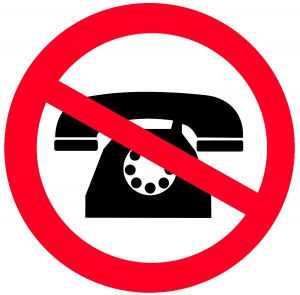 In April of 2014, we asked What is an “Autodialer” under the TCPA? At that time, a federal court in Pennsylvania had declined to find that Yahoo!, Inc. (“Yahoo”) used an automatic telephone dialing system (“ATDS”) in violation of the Telephone Consumer Protection Act (“TCPA”) simply because its equipment had the capability to store telephone numbers. However, a California federal court recently held that, pursuant to the language contained within the TCPA, in determining whether an ATDS was used, courts must simply focus on the “capacity” of a machine to store and generate random telephone numbers, regardless of whether the machine is presently capable of performing such function when the subject call(s) is/are made.
In April of 2014, we asked What is an “Autodialer” under the TCPA? At that time, a federal court in Pennsylvania had declined to find that Yahoo!, Inc. (“Yahoo”) used an automatic telephone dialing system (“ATDS”) in violation of the Telephone Consumer Protection Act (“TCPA”) simply because its equipment had the capability to store telephone numbers. However, a California federal court recently held that, pursuant to the language contained within the TCPA, in determining whether an ATDS was used, courts must simply focus on the “capacity” of a machine to store and generate random telephone numbers, regardless of whether the machine is presently capable of performing such function when the subject call(s) is/are made.
ATDS Narrowly Defined
Dominguez v. Yahoo!, Inc., a March 2014 case decided in the Eastern District of Pennsylvania, concerned several text messages sent by Yahoo to consumers in Pennsylvania that had e-mail accounts with the company. Yahoo maintained a notification system that automatically converted consumers’ email messages into a truncated format and sent the truncated e-mail messages to consumers via text message. In Dominguez, Yahoo did not dispute the fact that its e-mail notification system had the capacity to store consumers’ phone numbers and automatically send text messages. Despite these concessions, the Court ruled that the plaintiff failed to present any evidence that Yahoo’s e-mail notification system has the capacity to “use a random or sequential number generator to store or produce telephone numbers and then send a text message to those numbers” as required by the TCPA. Therefore, summary judgment was granted in Yahoo’s favor and the case was dismissed.
Gragg v. Orange Cab Co., a February 2014 case decided in the Western District of Washington, concerned a taxi cab dispatch system that sent text messages to consumers who had ordered a taxi cab. The system was capable of sending text messages if an operator manually typed in a telephone number or if the consumer’s telephone number was captured by caller ID. The court in Gragg “decline[d] to adopt an interpretation of ‘system’ that would lead to an absurd result” and observed that “[a]dopting plaintiff’s broad interpretation that any technology with the potential capacity to store or produce and call telephone numbers . . . would capture many of contemporary society’s most common technological devices within the statutory definition.”
Despite these holdings, however, many Courts have continued to insist on a literal, and thus broader interpretation of what qualifies as an ATDS under the TCPA.
ATDS Broadly Defined
As previously described on this blog, the Federal Communication Commission (“FCC”) and many other courts have taken a very expansive view in defining ATDS. For instance, last month, the Southern District of California declined to adopt a narrower definition of ATDS. In Sherman v. Yahoo! Inc., the facts at issue also concerned several text messages sent by Yahoo to consumers that maintained e-mail accounts with the company. As in Dominguez, Yahoo argued that its system is not an ATDS because it was not presently capable of generating and dialing random telephone numbers without software modifications when the subject text messages were sent. However, this time, the Court declined to dismiss the suit against Yahoo. The Court held that, pursuant to the clear language of the TCPA and controlling precedent, the sole inquiry for the Court is whether the equipment “has the requisite current and future capacity to act as an ATDS.”
As readers of this blog are aware, since October of last year, companies must obtain prior express written consent before placing calls or sending text messages to consumers. Accordingly, a court that defines ATDS broadly may be more likely to find a violation of the TCPA.
Protect Yourself
Due to the huge settlements and penalties that have recently been levied against telemarketers under the TCPA, we have advised our clients to broadly construe the definition of ATDS to avoid unwanted litigation and regulatory action. For instance, if you are utilizing any type of call center software as part of your telemarketing operations, you may be using an ATDS within the FCC’s definition.
We will continue to monitor whether courts will adopt the more pragmatic definition of ATDS enunciated by the courts in Dominguez and Gragg.
If you are interested in learning more about this topic or need to review your telemarketing practices, please e-mail us at info@kleinmoynihan.com, or call us at (212) 246-0900.
The material contained herein is provided for informational purposes only and is not legal advice, nor is it a substitute for obtaining legal advice from an attorney. Each situation is unique, and you should not act or rely on any information contained herein without seeking the advice of an experienced attorney.
Attorney Advertising



